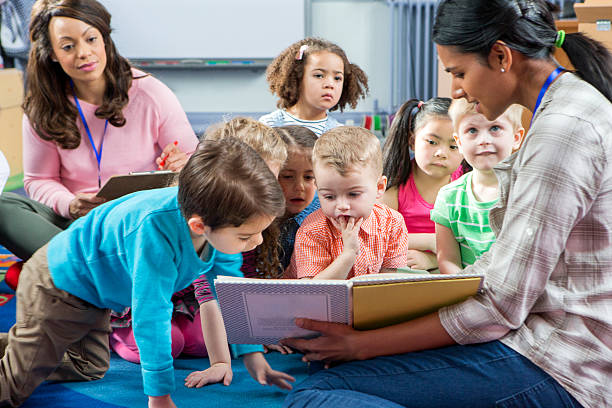
The early years of a child’s education are crucial in shaping their future academic success and social development. Nursery school serves as the first structured learning environment where children acquire the fundamental skills needed for a smooth transition into primary education.
By focusing on early literacy, numeracy, social interaction, and emotional regulation, nurseries provide a strong foundation that ensures children are well-prepared for the challenges of formal schooling.
At Herne Hill School, children experience a nurturing environment where play-based learning and structured activities come together to build their confidence, curiosity, and ability to engage in a classroom setting. This balance between guided instruction and independent exploration helps young learners develop the skills they need to thrive in their next educational stage.
Why School Readiness Matters
School readiness goes beyond knowing the alphabet or counting to ten. It encompasses cognitive, emotional, social, and physical skills that enable children to adapt to a more structured learning environment. When children start primary school with strong foundational abilities, they are more likely to succeed academically and socially.
Key aspects of school readiness include:
Early Literacy and Numeracy Skills
A well-designed nursery curriculum introduces children to basic literacy and numeracy in an engaging and interactive way. Activities such as storytelling, singing rhymes, and recognizing letters help develop language and comprehension skills. Counting games, pattern recognition, and sorting exercises lay the groundwork for mathematical understanding.
Social and Emotional Development
Being in a nursery setting teaches children how to interact with peers, share resources, take turns, and follow instructions. Developing these social skills helps children feel comfortable in group learning situations and fosters positive relationships with teachers and classmates.
Emotional regulation is another essential skill, as children learn to manage their feelings, express themselves appropriately, and handle new challenges with resilience.
Independence and Self-Care
Nursery helps children become more independent in daily tasks, such as dressing themselves, using the toilet, and tidying up after play. Encouraging these self-care skills not only boosts their confidence but also reduces anxiety when they enter primary school.
Being able to follow simple instructions and complete tasks on their own makes the transition much smoother.
Concentration and Problem-Solving
Young children have naturally short attention spans, but a well-structured nursery program gradually improves their ability to focus on tasks, listen to teachers, and complete activities.
Through play-based problem-solving exercises, such as building structures with blocks or completing puzzles, children develop critical thinking and perseverance—skills that are essential for primary school learning.
Physical Readiness
Fine and gross motor skills play a significant role in school readiness. Activities like cutting with scissors, drawing, and threading beads help strengthen hand muscles needed for writing.
Running, jumping, and balancing exercises improve coordination and stamina, preparing children for an active school environment.
How Nursery Prepares Children for the Next Step
A well-rounded nursery experience ensures that children enter primary school with the confidence and skills necessary to embrace learning. They develop curiosity, adaptability, and a positive attitude toward education, all of which contribute to long-term academic success.
Moreover, nursery provides a safe space where children can learn at their own pace without the pressure of formal assessments. By fostering a love for learning early on, nurseries help create enthusiastic and engaged students who look forward to school rather than feeling overwhelmed by it.
Final Thoughts
Nursery education plays a vital role in ensuring that children are school-ready, equipping them with essential cognitive, social, and emotional skills. Through engaging activities, structured routines, and nurturing guidance, nurseries help young learners transition smoothly into primary school.
Parents looking for a high-quality nursery should seek environments that prioritize play-based learning, emotional development, and foundational academic skills to give their children the best possible start in their educational journey.
Read More :- Are Private Nursery Schools Worth the Investment? Exploring Costs and Benefits